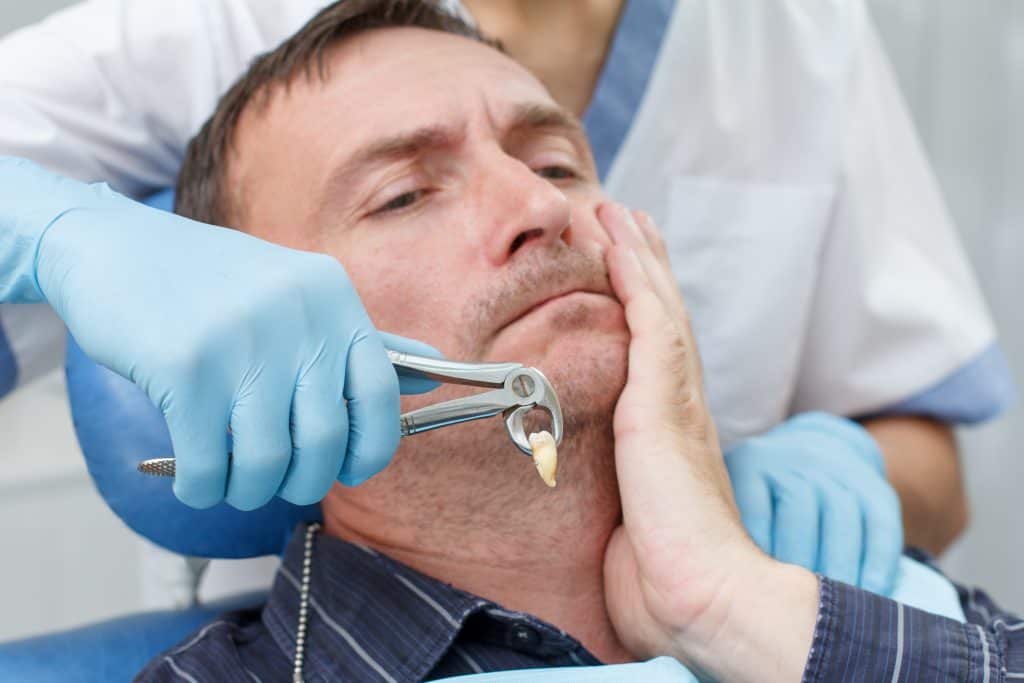Exploring Various Sedation Options for a Comfortable Wisdom Teeth Extraction Experience

Local Anesthetic
Local anesthetic is a commonly used method for numbing particular locations of the mouth during wisdom teeth removal procedures. By providing a regional anesthetic, such as lidocaine, a dental practitioner can guarantee that the individual remains pain-free and comfortable throughout the removal procedure.
One of the main benefits of local anesthesia is its targeted numbing result, which means that just the details location being dealt with is affected. This localized approach minimizes the threat of systemic side impacts and permits for a quicker healing post-procedure. wisdom teeth removal aspendale. Furthermore, local anesthesia is considered to be a secure and regular practice in dental care, with very little threats entailed when provided by a qualified expert
Laughing Gas

When the mask is eliminated, the effects of the gas use off swiftly, permitting people to resume their typical tasks without sticking around sedative effects. Nitrous oxide is suitable for people of all ages, making it a versatile sedation alternative for knowledge teeth removals and various other oral procedures.
Oral Sedation

One of the key advantages of dental sedation is its ease of administration. Unlike intravenous sedation, oral sedation does not require injections or needles, making it a more comfy option for people with a fear of needles. Additionally, oral sedation is taken into consideration safe and efficient when carried out by experienced oral specialists. Nevertheless, it is essential for patients to adhere to pre-operative instructions given by their dentist, such as avoiding consuming alcohol or consuming before the procedure to guarantee the sedative medicine works as planned.
IV Sedation
Administered intravenously by qualified physician, IV sedation is an effective method used to induce a controlled state of deep relaxation and unconsciousness throughout dental treatments. Unlike dental sedation, which can be unpredictable view it now in its results, IV sedation enables specific control over the level of sedation, making it an ideal choice for complex procedures like wisdom teeth extractions.
During IV sedation, a sedative medicine is supplied directly into the bloodstream via a blood vessel, permitting it to take effect quickly and successfully. This method makes certain that the individual continues to be uninformed and comfortable of the procedure while still maintaining crucial features such as breathing and heart rate.
One of the main benefits of IV sedation is its capacity to give a much deeper degree of sedation compared to various other approaches, making it especially appropriate for people with high levels of anxiousness or those undergoing extensive dental job. In addition, the effects of IV sedation typically wear away progressively after the treatment, decreasing the possibility of grogginess or lingering negative effects. Generally, IV sedation supplies a secure and effective option for guaranteeing a comfortable and stress-free experience during knowledge teeth extraction.
General Anesthetic
Having actually talked about the advantages of IV sedation for knowledge teeth removal, the utilization of basic anesthetic supplies an alternative choice for clients calling for a much deeper degree of unconsciousness throughout dental treatments. General anesthetic generates a regulated state of unfamiliarity, guaranteeing the patient really feels no pain or discomfort throughout the removal procedure. This technique is especially useful for individuals with extreme oral stress and anxiety, facility surgical needs, or those undergoing multiple removals all at once.
General anesthesia is administered by an experienced anesthesiologist who very closely monitors the person's vital indications throughout the treatment. It entails making use of intravenous medicines or inhaled gases to cause a state of unfamiliarity. While under general anesthetic, the patient will not be aware of the surgical treatment, experience any kind of pain, or have any type of recollection of the procedure later.
Although basic anesthesia is safe when administered by certified professionals, it lugs a slightly greater threat compared to other sedation choices. wisdom teeth removal aspendale. Patients considering basic anesthesia for knowledge teeth extraction need to discuss the prospective risks and benefits with their dental expert or dental doctor to make a notified decision based on their private needs and case history
Conclusion
Finally, various sedation alternatives are readily available to make sure a comfy knowledge teeth removal experience. Neighborhood anesthetic is frequently used for numbing the specific area, while you can check here nitrous oxide gives leisure and discomfort alleviation. Dental sedation and IV sedation deal much deeper degrees of leisure, these details depending on the client's needs. General anesthesia can be utilized for much more complicated situations. It is very important to seek advice from your dental practitioner or oral cosmetic surgeon to identify the most ideal sedation option for your procedure.
Nitrous oxide is appropriate for clients of all ages, making it a versatile sedation alternative for knowledge teeth removals and various other dental treatments.
Unlike intravenous sedation, oral sedation does not need needles or injections, making it a much more comfortable option for people with a concern of needles.One of the primary advantages of IV sedation is its capacity to supply a deeper degree of sedation compared to various other approaches, making it specifically appropriate for people with high levels of stress and anxiety or those going through comprehensive oral work.Having actually reviewed the benefits of IV sedation for wisdom teeth removal, the usage of basic anesthetic provides an alternate choice for clients needing a much deeper degree of unconsciousness throughout oral procedures. Dental sedation and IV sedation offer much deeper levels of relaxation, depending on the person's requirements.